CAST to Release Comprehensive Paper on FIFRA and ESA at the CropLife & RISE Regulatory Conference
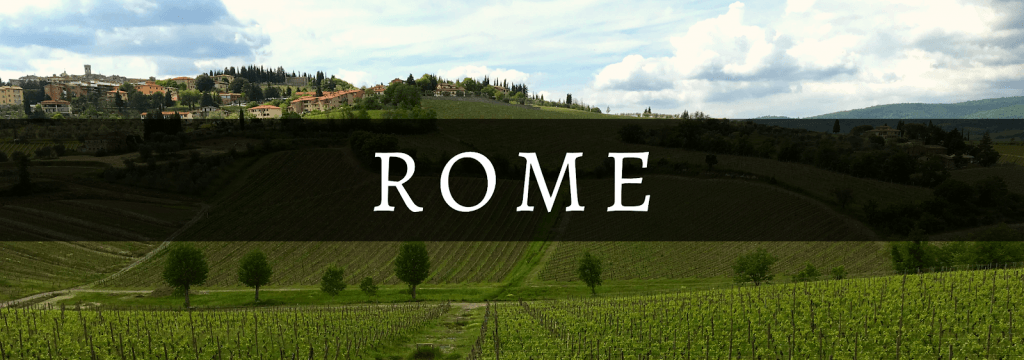
The question I am always asking myself is, “Where to next?”
During the fall semester of 2018, I was looking for a challenge—a new opportunity with a new destination that I had not yet experienced. (I have been able to blog about my previous travel experiences to Argentina and Brazil on the CAST blog). I wanted to grow my understanding and professional experiences in my discipline of global resource and horticulture systems. With that in mind, I applied to the annual Dean’s Global Food and Agricultural Leadership program in Rome.
This program is a special partnership between Iowa State College of Agriculture and Life Sciences and the Food and Agriculture Organization (FAO) of the United Nations. It focuses on giving undergraduate students the opportunity to work with professionals on real-world issues in agriculture and gain a new cultural perspective by living in Rome during the four-week program. Students are prepared through a semester-long pre-course that allows them to team build and use their critical thinking skills for important discussions about agricultural issues and learn how to improve as a team of professionals.
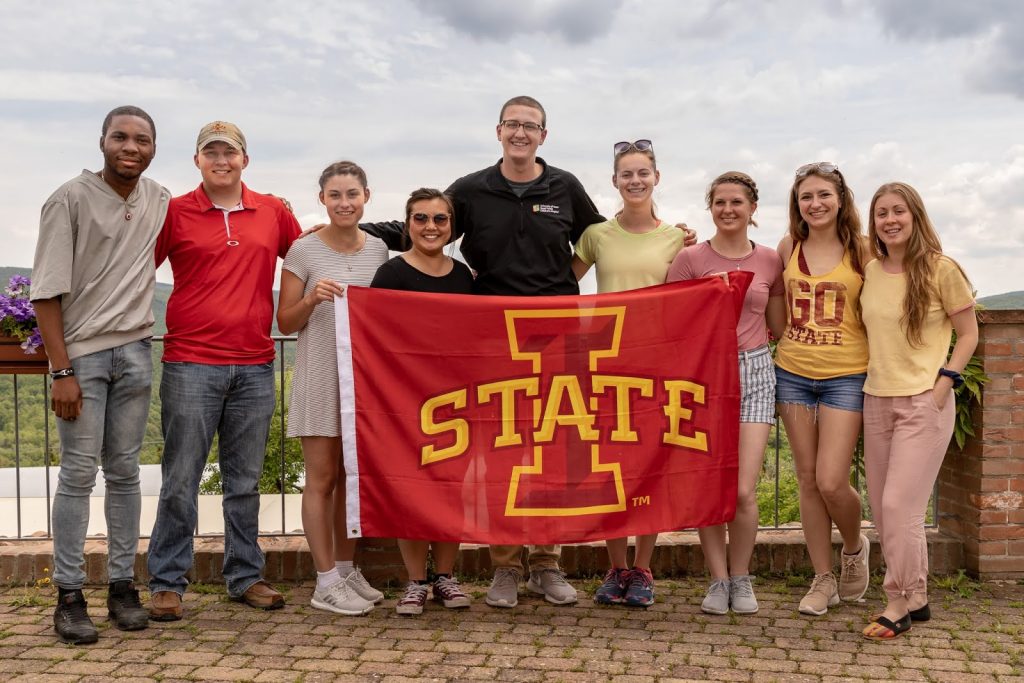
Caryn (far right) with her Iowa State peers during their free time in Rome.
I applied to this opportunity with some key things in mind. I wanted to gain more research experience, learn how to work in a high-functioning team—especially how to handle conflict in professional situations—and increase my competency of world issues, specifically those relating to food production.
I was in Argentina on winter break when I heard the news that I was accepted to the program. I was ecstatic. In that moment, I was reminded that each decision I make to better my future I do with purpose, critically thinking about how I will grow and how it will benefit me or how I will use that experience later on. That moment reminded me how passionate I am about living and traveling internationally to contribute to advancements in agriculture, and what an honor it is to work with FAO as an undergraduate student.
Preparing for an Adventure
During the spring semester, we met twice a week with our leading professors to prepare for the program in May. We discussed working together over the next few months towards a final product to present at the end of our stay in Rome. This preparation was vital to our team’s functioning by grasping the issues that we would be researching, improving our skills in comprehension of science literature, and practicing presenting that comprehension.
One of the most exciting moments was finding out what our project topics would be. As a team of nine, we would split up into two groups and work on researching the upcoming and innovative technology of in vitro meat as well as a potential global shift to plant-based diets and the impact on livestock. We started our research and literature reviews by contacting professors with expertise relating to these topics at Iowa State for background knowledge and their opinions on these topics, then continued our research in Rome and guided our writing through the Global Forum for Food and Agriculture (GFFA) framework.
Working Hard
Arriving in Rome was surreal. After months of research and preparation we were ready to take on the biggest task. Each week, we met with our FAO mentors to discuss the progress of our research, ask any questions, and adjust to any redirection necessary. We worked diligently on our deliverables for the project: A 40-page literature review, a detailed slide deck based on that literature review, a shorted presentation for our FAO seminar, a policy maker slide deck, and a one-page summary of the results of our research. At the end of those four weeks we presented our findings to FAO staff members at a special seminar. Each team performed extremely well, growing professionally, handling conflict maturely, and we had a lot of fun together.
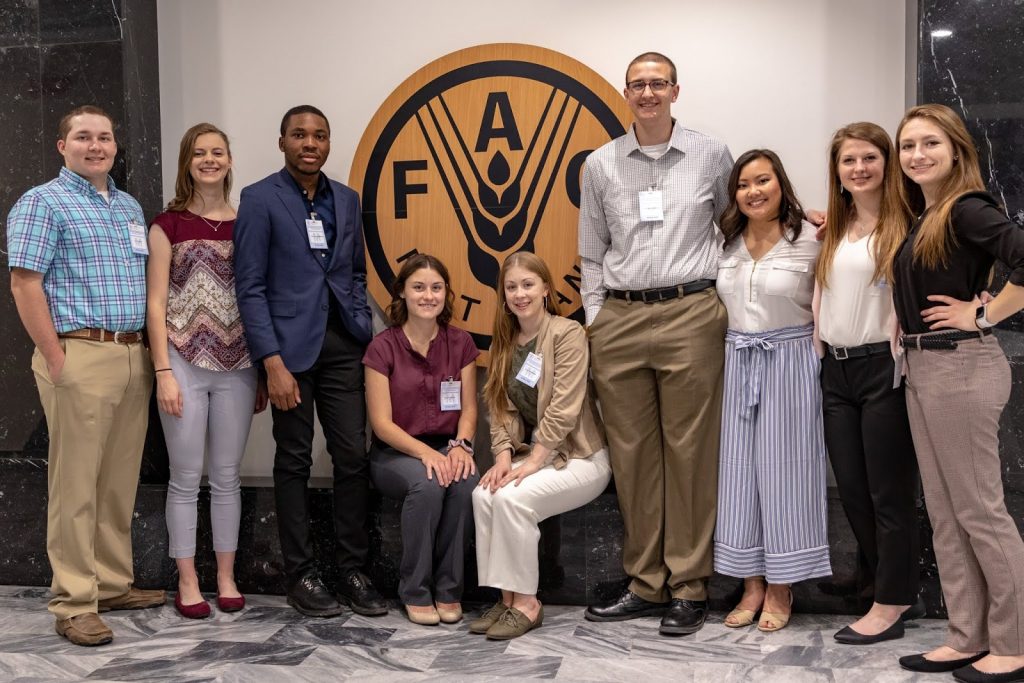
Caryn, center, with fellow students at the FAO.
Another special opportunity that arose while in Rome was the opportunity to meet the newly elected US Mission to the UN FAO, Ambassador Kip Tom. This was a unique moment for students as we met with Ambassador Tom to discuss our views and what we are learning about issues and agriculture and specifically what we were working on in Rome. It was an honor to meet with such a respected individual and for him to take time out of his day to learn about undergraduates’ interests and work, and he encouraged us to strive forward.
‘Wine Is Not a Drink, It Is a Food’
Because of the intense nature of this course, we took “brain breaks” to do some touristy activities around Rome. Of course, at the top of our list was the Colosseum, Roman Forum, many of the important Italian monuments and fountains, the Pantheon, the Vatican and St. Peter’s Basilica, the Spanish Steps, and many more of the must-see attractions around the ancient city.

I always enjoyed history and learning the stories behind important pieces and places because that helps me understand each place I visit better. Every day that we would walk the city, I was in awe that I was walking among ancient ruins and imagined what life was like when they were occupied. We also took a trip out to the countryside to Tuscany where we went on some farm tours to learn about the smallholder farm operations, and wine and olive production. We were met by warm and happy host families that cooked the most amazing pasta. It was an honor to dine with these families and learn up close the important things they value in their culture. One quote I remember from our tour guide Silvio, who has been a part of the program for ten years was that “wine is not a drink, it is a food” as he was explaining the importance and symbolism of wine to Italian culture.
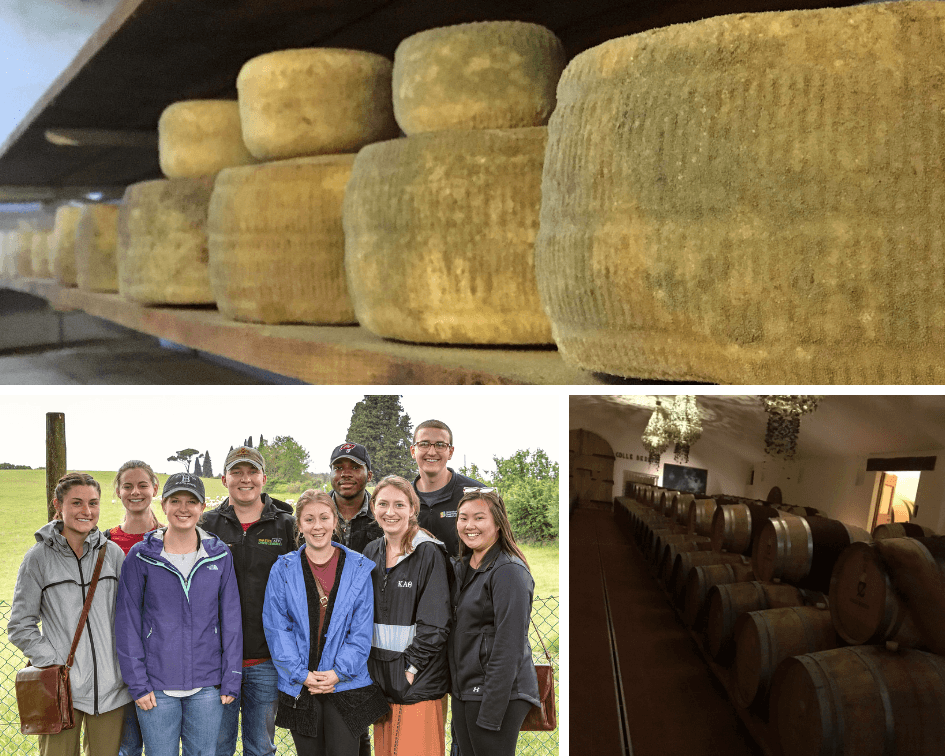
There were so many special moments during this experience that I could probably go on writing forever but I would like to summarize this study abroad experience as a unique opportunity to grow as young professionals by working loosely with college professors, building relationships with peers, and making worldwide connections. Also, there was at least one gelato run a day (sometimes two, thank you Dean Colletti and Drs. Steven and Elizabeth Lonergan), many nights of wine and laughter together and admiring the beautiful art of Rome.
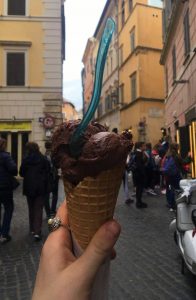 Thank You!
Thank You!
Many thanks to the College of Agriculture and Life Sciences at Iowa State University for the opportunity to participate in such a prestigious opportunity, especially to Dr. Colletti, as well as Shelley Taylor, our travel coordinator. Many thanks also to Ted MacDonald for the lectures and instruction that prepared us for Rome, and Pia Schneider, Rome program resident director, for welcoming us into the design studio, sharing the yummy prosecco and being available to help us! Last but not least, many thanks to Drs. Steven and Elizabeth Lonergan for believing in us as students and young professionals, having patience with us through the hard parts, and for the hard work they put into this program.
By Caryn Dawson
Photos provided by Caryn Dawson
Your donation to CAST helps support the CAST mission of communicating science to meet the challenge of producing enough food, fiber and fuel for a growing population. Every gift, no matter the size, is appreciated.